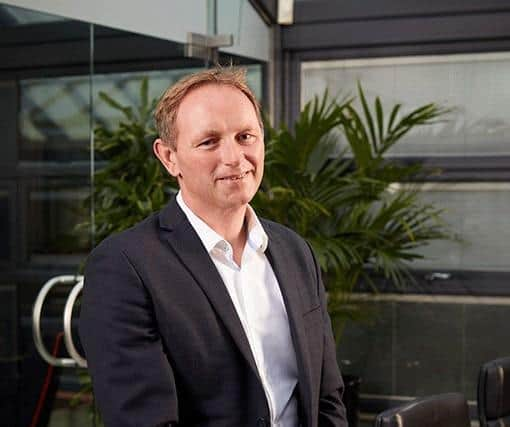How to decarbonise a city the size of Leeds: Mike Cooke and Helen Hayden
Leeds City Council has pressed ahead with future-proofing business and consumer energy needs with the award-winning Leeds PIPES heat network. The concept is relatively straightforward; non-recyclable waste is taken to a Recycling and Energy Recovery Facility (RERF) in East Leeds, which is a landmark, eco-friendly building.
The result is an affordable, reliable approach to low-carbon heat and hot water, delivered into buildings from new builds to existing multi-story flats, historic public buildings and healthcare facilities. As we transition towards a greener economy in the future, generating energy from waste offers the opportunity to harness the resource.
Advertisement
Hide AdAdvertisement
Hide AdLeeds PIPES, a scheme delivered by the Council and Vital Energi, is a solution for transferring waste heat from where it is generated to where it is needed. Initial works saw infrastructure reach into the city centre, providing energy for 10 public and private buildings, including Leeds Beckett University, Leeds Playhouse, Leeds Town Hall, Quarry House and Arcadias School.


The district heating network is already supplying over 1,800 council and housing association properties with all of their heat and hot-water needs, meaning that properties don’t have to rely on in-home boilers.
Looking at the bigger picture, a positive shift is already underway, with the Government seeing district heating networks as having a key role in the delivery of efficient low carbon heating; to the formation of the Heat Network Industry Council (HeatNIC); to progress being made in terms of heat development zones, planning regulations and funding.
As the city continues to grow, energy challenges will be forefront in the minds of those planning for resilience. That’s why Leeds is laying the foundations for the future of urban heating today—delivering compelling financial, environmental, and resilience benefits needed by its customers right now. With new infrastructure – offices, build-to -rent developments, education campuses, cultural amenities, hotels, shopping centres and student accommodation – we must focus on resilience and clean energy.
Advertisement
Hide AdAdvertisement
Hide AdNot only is there the strongest of environmental cases; there is a solid economic argument too. Going forward, affordability and reliability will be major priorities for people who consider Leeds to be their home or place of work.
Leeds has stated its ambition to become carbon neutral by 2030 – decades ahead of national targets. By being bold and investing in regenerative technologies, the city and its leaders have spoken with actions and words, but it will take a joint effort to achieve this across public and private sector.
The long-term certainty provided by a district heating network and the decisions taken by public and private sector to capitalise on this low carbon technology mean that connected buildings can be shielded from huge price volatility that has done damage to so many recently. The fact that Leeds deployed this technology early and has been leading the way should be a source of pride for us all.
The Leeds RERF, combined with a district heating network, can champion Leeds’ place at the forefront of the UK’s low-carbon future.
Mike Cooke is Managing Director North & Scotland at Vital Energi and Councillor Helen Hayden is Executive Member for Infrastructure and Climate at Leeds City Council.